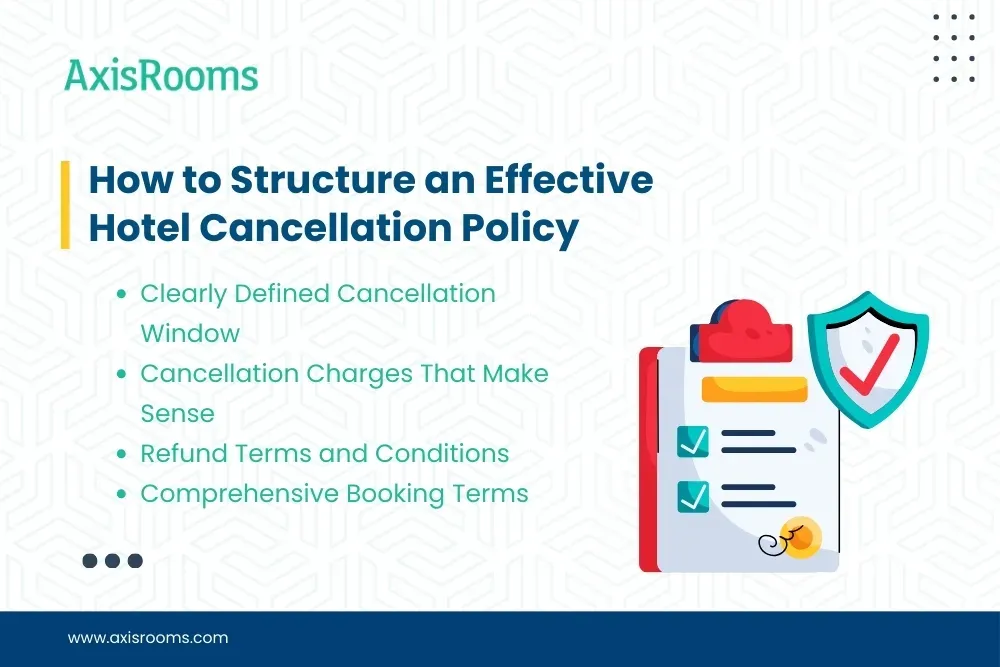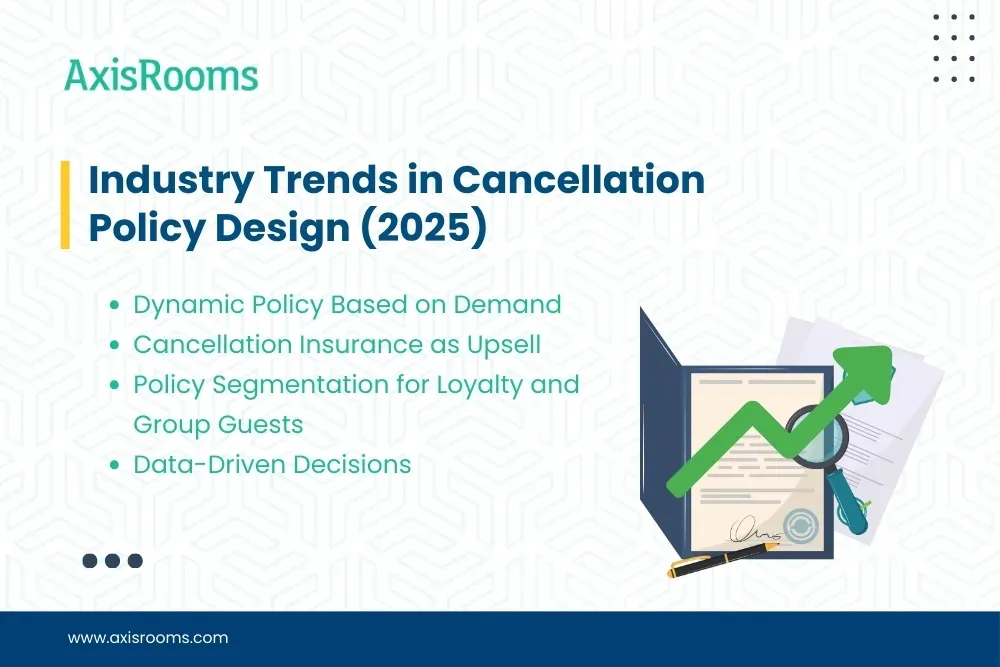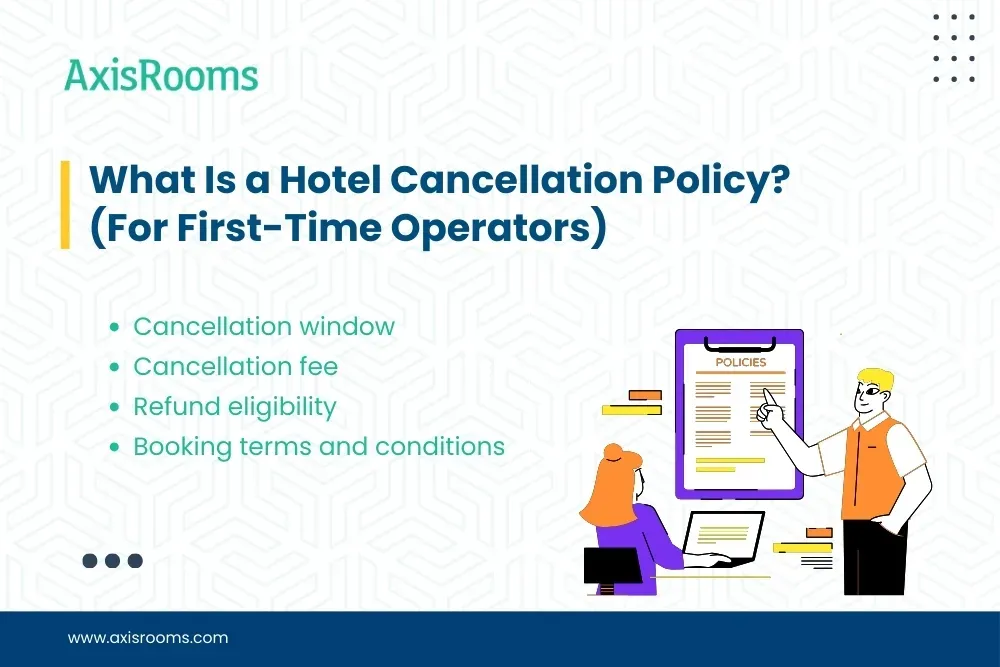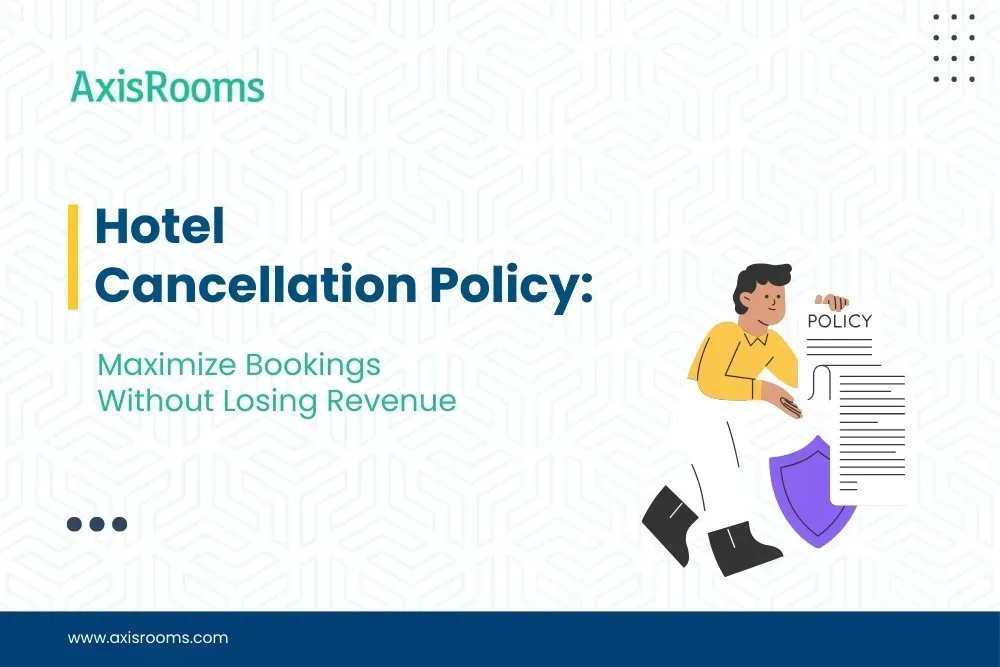In today’s hospitality landscape, your hotel cancellation policy is more than just a legal necessity—it’s a revenue lever.
With shrinking booking windows, higher guest expectations, and competitive OTA listings, hoteliers must design a policy that balances flexibility for guests and financial protection for the business.
Why Cancellation Policies Impact Revenue Directly
1. Guests Expect Flexibility
Over 70% of guests actively filter by “free cancellation” when browsing online travel platforms. Without flexible terms, you risk losing bookings—especially direct ones—to competitors with guest-friendly policies.
Recent data from Zeta Global shows that travelers in 2025 value flexibility over traditional loyalty or rewards programs, with online interest in “vacation packages and deals” showing as 2.25X more popular than interest in travel rewards.
2. No-Shows and Late Cancellations Hurt Operations
Late cancellations without cancellation charges or no-shows without a defined policy lead to unoccupied rooms and wasted operational planning. It impacts front office scheduling, housekeeping, and revenue forecasting.
3. OTA and Direct Booking Conflicts Erode Trust
If your cancellation policy differs between your hotel’s website and OTAs like Booking.com or Expedia, guests will notice—and it leads to disputes, negative reviews, and cancellations.
Common Hotel Cancellation Policy Types (with Use Cases)
Each structure comes with pros and cons, and should be aligned with your seasonality, average lead time, and source market behavior.
How to Structure an Effective Hotel Cancellation Policy

To reduce confusion, limit disputes, and protect your hotel’s income, your policy should include the following:
1. Clearly Defined Cancellation Window
Be precise: “Cancellations made 48 hours before 2 PM on the day of arrival are fully refundable.” Avoid vague wording like “reasonable notice.”
2. Cancellation Charges That Make Sense
List specific cancellation fees—flat or percentage-based. Make this consistent across your PMS, hotel booking engine, and OTA listings.
3. Refund Terms and Conditions
Explain when and how hotel refunds are issued:
- Processing time (e.g., 5–10 business days)
- Method (credit card reversal, bank transfer, wallet refund)
- Conditions for full vs. partial refund
4. Comprehensive Booking Terms
Your booking terms and conditions should also include:
- No-show policy (e.g., full charge applied)
- Early departure charges
- Force majeure clause (unforeseen events like natural disasters or strikes)
- Rules for changes (guest name, date amendments)
Industry Trends in Cancellation Policy Design (2025)

Dynamic Policy Based on Demand
Modern hotels now adjust cancellation windows based on season, demand, and event schedules. For example, 24-hour windows on weekdays, 72-hour windows during long weekends.
Cancellation Insurance as Upsell
Some hotels are offering a small-paid add-on for guests to “unlock” free cancellation, turning flexibility into an additional revenue stream.
Policy Segmentation for Loyalty and Group Guests
Regular guests or loyalty members often get softer terms. Meanwhile, groups, high-risk geographies, or OTA-sourced guests are placed on stricter policies.
Data-Driven Decisions
Hotels using revenue systems and analytics tools now track cancellations by rate plan, channel, and lead time—allowing smarter adjustments over time. This approach is central to efficient revenue management strategies for independent hotels, helping smaller properties compete with chains while safeguarding margins.
AxisRooms Spotlight: Smart Policy Automation for Hoteliers
AxisRooms solves this by automating cancellation policy sync across your connected platforms. With the Channel Manager, you can:
- Push live updates for policy changes
- Reduce guest disputes from inconsistent terms
- Access cancellation insights to improve forecast accuracy
The platform also ensures compatibility with OTA integrations, reducing friction in managing policy variations across different booking sources.
What Is a Hotel Cancellation Policy? (For First-Time Operators)

A hotel cancellation policy is a set of rules that outline how and when a guest can cancel a hotel booking. It includes:
- Cancellation window (time frame before arrival)
- Cancellation fee (amount to be paid if canceled late)
- Refund eligibility (what percentage of booking amount is refundable)
- Booking terms and conditions (hotel’s legal stance)
It is essential for every hotel—no matter the size—to have this documented and visible at all booking touchpoints.
Final Thoughts: A Strong Policy Means Better Forecasting and Fewer Disputes
In 2025, hotels must evolve their cancellation policy to meet the changing booking habits of travelers. Last-minute bookings, price sensitivity, and increasing OTA influence make it vital to:
- Keep policies transparent and aligned across platforms
- Offer flexibility only where it drives measurable ROI
- Automate policy management to reduce manual errors
- Use cancellation data to improve pricing and inventory decisions
The latest Chekin hospitality report highlights that while cancellation rates remain elevated—reaching over 13% in some markets—hotels that implement clear deposit and cancellation policies and automate contract agreements are seeing better results.
Done right, your booking cancellation policy becomes a tool—not just a clause.


